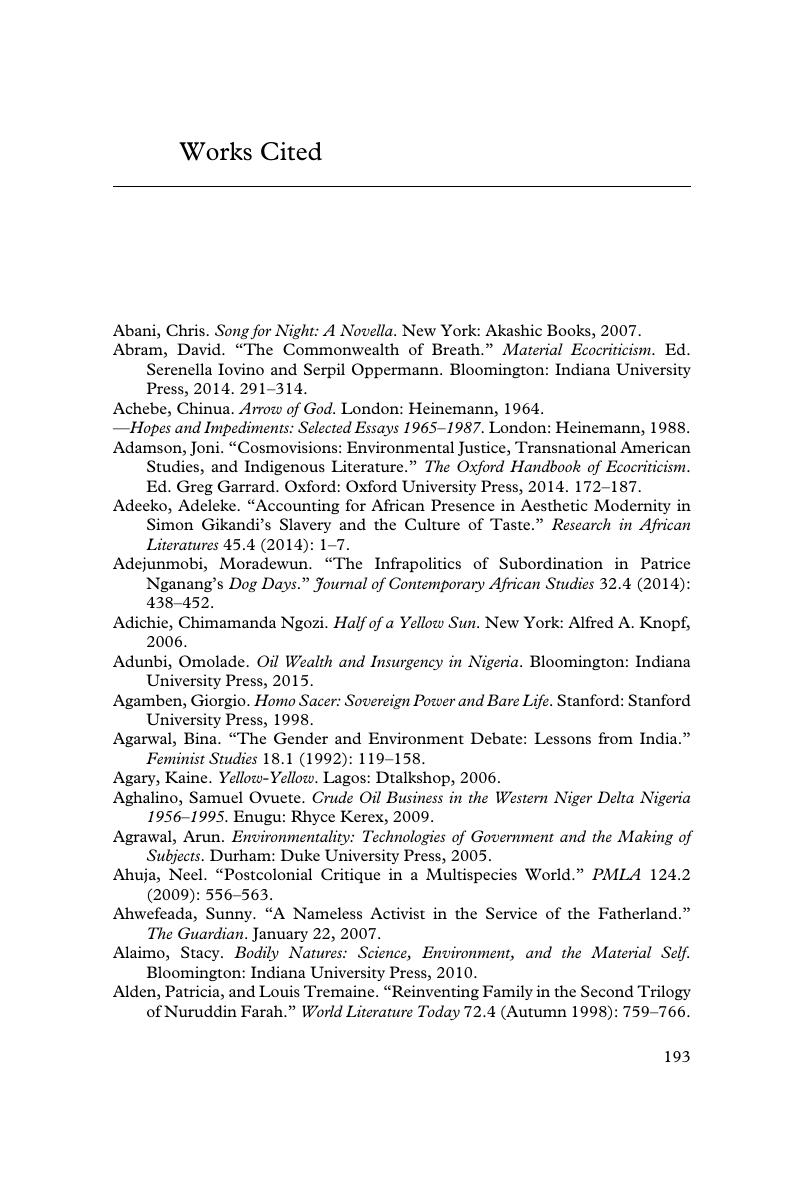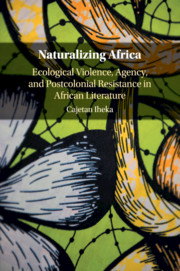Book contents
- Reviews
- Naturalizing Africa
- Naturalizing Africa
- Copyright page
- Dedication
- Contents
- Acknowledgments
- Introduction: Naturalizing Africa
- 1 African Literature and the Aesthetics of Proximity
- 2 Beyond Human Agency: Nuruddin Farah and Somalia’s Ecologies of War
- 3 Rethinking Postcolonial Resistance: The Niger Delta Example
- 4 Resistance from the Ground: Agriculture, Gender, and Manual Labor
- Epilogue: Rehabilitating the Human
- Notes
- Works Cited
- Index
- References
Works Cited
Published online by Cambridge University Press: 24 November 2017
- Reviews
- Naturalizing Africa
- Naturalizing Africa
- Copyright page
- Dedication
- Contents
- Acknowledgments
- Introduction: Naturalizing Africa
- 1 African Literature and the Aesthetics of Proximity
- 2 Beyond Human Agency: Nuruddin Farah and Somalia’s Ecologies of War
- 3 Rethinking Postcolonial Resistance: The Niger Delta Example
- 4 Resistance from the Ground: Agriculture, Gender, and Manual Labor
- Epilogue: Rehabilitating the Human
- Notes
- Works Cited
- Index
- References
Summary

- Type
- Chapter
- Information
- Naturalizing AfricaEcological Violence, Agency, and Postcolonial Resistance in African Literature, pp. 193 - 206Publisher: Cambridge University PressPrint publication year: 2017



